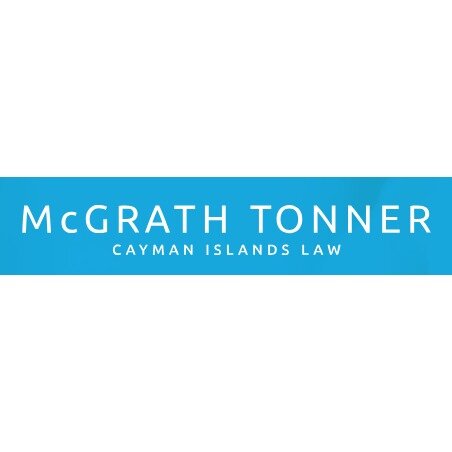Best Natural Resources Lawyers in Cayman Islands
Share your needs with us, get contacted by law firms.
Free. Takes 2 min.
Or refine your search by selecting a city:
List of the best lawyers in Cayman Islands
About Natural Resources Law in Cayman Islands
The Cayman Islands, known for their beautiful beaches and offshore financial services, also have a range of natural resources that are crucial to their environment and economy. Natural resources law in the Cayman Islands primarily focuses on the conservation and sustainable management of these resources, which include marine environments, land use, and biodiversity. These legal frameworks are designed to balance development needs with environmental conservation, ensuring that natural resources are available for future generations while supporting current economic activities.
Why You May Need a Lawyer
Individuals and businesses might need legal assistance in the field of natural resources for a variety of reasons. Common situations include:
- Obtaining permits for activities that might impact land or marine environments, such as construction or tourism ventures.
- Navigating compliance with local and international environmental regulations.
- Engaging in disputes involving land use, environmental impact assessments, or resource exploitation rights.
- Advising on the legal implications of business operations on the natural environment.
- Consulting on conservation efforts and establishing environmentally sustainable practices.
Legal expertise can help ensure activities are conducted legally and sustainably, mitigating the risk of penalties and legal disputes.
Local Laws Overview
The Cayman Islands have established a robust legal structure to oversee natural resources. Some key aspects include:
- The National Conservation Law, which provides guidelines for protecting Cayman’s natural habitats and species.
- Marine Parks Regulations, aiming to manage and protect marine environments.
- Land Acquisition Law, dealing with the compulsory acquisition of land for public purposes.
- Planning Law, governing land use and development to ensure sustainable practices.
- International agreements on biodiversity and climate change to which the Cayman Islands are a party, influencing local policy and regulations.
Frequently Asked Questions
What types of natural resources are highlighted for protection in the Cayman Islands?
The Cayman Islands prioritize the protection of marine environments, terrestrial species, mangrove forests, and coral reefs, given their ecological and economic significance.
Do I need a permit for building near protected areas?
Yes, you may need a permit, and it requires adherence to specific guidelines designed to minimize environmental impact.
What are the penalties for non-compliance with environmental laws?
Penalties can range from fines and sanctions to the suspension of business activities and legal action.
How does the Cayman Islands National Conservation Law affect my business?
This law requires businesses to consider the environmental impact of their operations and may necessitate environmental assessments and permits for certain activities.
Can I appeal a decision made by the Planning Department regarding my land use application?
Yes, there is an appeals process in place, and a lawyer proficient in natural resources law can guide you through it.
Are there incentives for adopting environmentally sustainable practices?
The Cayman Islands may offer various incentives, such as tax breaks or grants, for businesses that promote sustainability.
How can a lawyer help in negotiating land deals related to natural resources?
A lawyer can ensure compliance with all relevant laws, secure necessary permits, and help in structuring deals that benefit all parties while protecting the environment.
What international environmental agreements influence local laws?
The Cayman Islands adhere to several international treaties, such as the Convention on Biological Diversity and agreements related to climate change, which shape local regulations.
How are marine resources managed and protected?
Through the Marine Parks Regulations, areas are designated for varying levels of use and protection, helping sustain fish populations and coral ecosystems.
What should I consider when purchasing property in a conservation area?
You must consider restrictions on development, potential need for environmental impact assessments, and the availability of necessary permits.
Additional Resources
Several governmental and non-governmental organizations can provide further information and assistance:
- The Department of Environment provides guidance on conservation policies and practices.
- The National Trust for the Cayman Islands focuses on the preservation of natural and cultural heritage.
- The Cayman Islands Planning Department handles zoning and land use regulations.
- Environmental consultancies can offer specialized advice and assessments needed for compliance.
Next Steps
If you find yourself needing legal assistance with natural resources in the Cayman Islands, consider the following steps:
- Identify the specific legal area or issue where you require assistance, such as permits, compliance, or disputes.
- Consult with a lawyer specializing in environmental or natural resources law to evaluate your situation and discuss potential strategies.
- Gather any relevant documentation, including permits, correspondence, and legal notices, to provide a comprehensive overview of your case to your lawyer.
- Consider reaching out to governmental and non-governmental organizations for additional support and information.
- Stay informed about any changes in local laws or regulations that may affect your situation.
Professional legal advice is invaluable in navigating the complexities of natural resources law and ensuring compliance while achieving your objectives.
Lawzana helps you find the best lawyers and law firms in Cayman Islands through a curated and pre-screened list of qualified legal professionals. Our platform offers rankings and detailed profiles of attorneys and law firms, allowing you to compare based on practice areas, including Natural Resources, experience, and client feedback.
Each profile includes a description of the firm's areas of practice, client reviews, team members and partners, year of establishment, spoken languages, office locations, contact information, social media presence, and any published articles or resources. Most firms on our platform speak English and are experienced in both local and international legal matters.
Get a quote from top-rated law firms in Cayman Islands — quickly, securely, and without unnecessary hassle.
Disclaimer:
The information provided on this page is for general informational purposes only and does not constitute legal advice. While we strive to ensure the accuracy and relevance of the content, legal information may change over time, and interpretations of the law can vary. You should always consult with a qualified legal professional for advice specific to your situation.
We disclaim all liability for actions taken or not taken based on the content of this page. If you believe any information is incorrect or outdated, please contact us, and we will review and update it where appropriate.
Browse natural resources law firms by city in Cayman Islands
Refine your search by selecting a city.
















